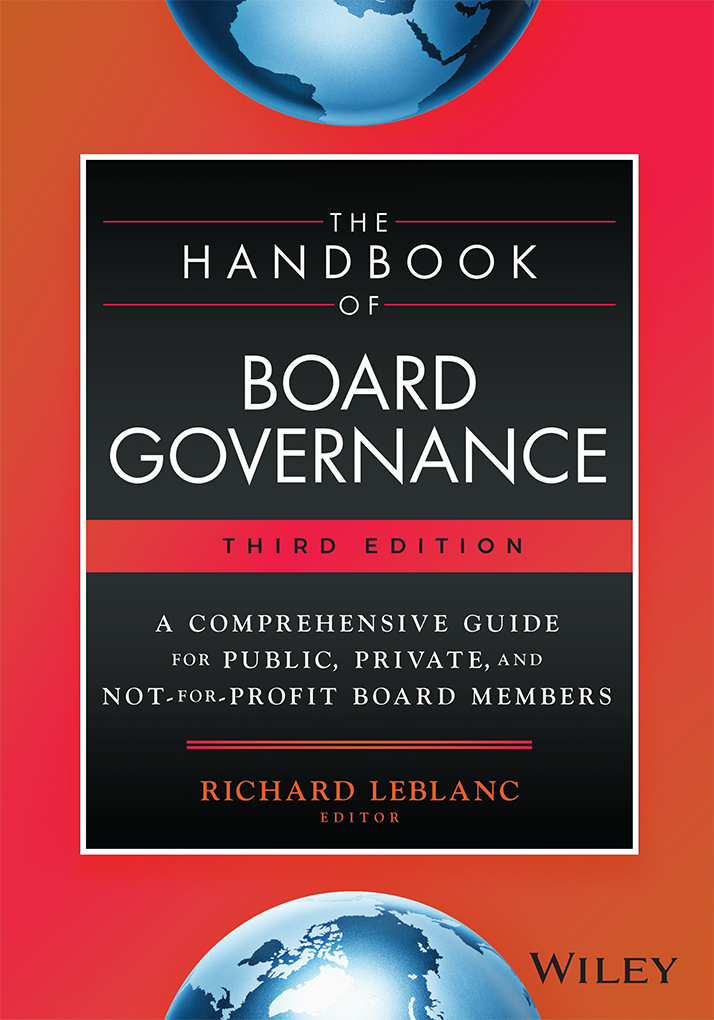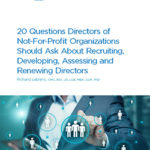“It’s [insert significant shareholder’s name]’s way or the highway” is a common refrain I hear from directors on control block boards.
Facebook’s governance has been described by Businessweek as resembling a “dictatorship” and by a Wall Street Journal blog as “Governance = Zuckerberg.”
Under the public offering, 27-year-old Mark Zuckerberg owns almost 60% of supervoting shares, is Chair and CEO, can name a successor CEO, and has complete control over the nomination process for directors.
The governance debate over control block companies is not new. News Corp, Research in Motion, Hollinger, Magna and others are noteworthy for running into governance problems as a result of a high degree of control in one person or group of persons.
When I observe control block boards in action, the dynamic is very different from a widely held board. Directors tell me that they really owe their position to the control person. And they act in this fashion. The shortest meeting I observed was 10 minutes long. The founder said, “Gentlemen [and there were no women in the boardroom, similar to Facebook], this is what I propose to do. Any questions? [There were none, from very high profile directors sitting at the table.] Good, then. Let’s go for lunch.”
Governance is all about checks and balances. From the controlling shareholder point of view, this is his company, his board and his directors. This is fine, but dangerous for minority shareholders and in the long term if or when things start to go wrong.
The answer is not “if investors don’t like it, then they don’t have to invest.” If or when founders go to public capital markets for money, their accountability changes. If founders don’t like this, then they don’t have to go to the capital markets is the counterpoint.
I have argued (see “Richard Leblanc’s paper”) for example that minority shareholders (the other 40% of Facebook for example) should have seats at the board table and be there to oversee related party transactions and protect all shareholders including minority ones. They should also be independent from the founder.
Nevertheless, people do things simply because they can. Legal counsel has drafted the S-1 filing giving Zuckerberg as much control as possible. This is entirely legal.
What is also legal is the diversity of Facebook’s board. California State Teachers’ Retirement System sent Zuckerberg a letter earlier this week urging him to appoint women to the Facebook board and enlarge it in line with its market capitalization. There is ample evidence that diverse groups mitigate groupthink and strengthen decision-making. Facebook COO Sheryl Sandberg has been a proponent of greater board diversity, arguing the figures for women on boards are currently stuck at 15% and have been this way for the last 10 years. See a compelling video here.
But why would Zuckerberg do this? The Securities and Exchange Commission does not even define diversity. As a result, companies can define diversity downward to include diversity of “perspective,” “experience” or other factors, when they are an all male board.
It is particularly surprising that this board is not diverse, when its customer base contains people from just about all regions of the world.
The reason it is not diverse is presumably it reflects Zuckerberg’s intent.
When it comes to governance and diversity, the business reason for addressing the shortcomings above is quite simple. A good board earns its keep when it prevents the CEO from making that one big mistake. It takes enormous confidence to put people on the board with whom you disagree but whose opinion you respect, if only to keep you from making that mistake.
Zuckerberg is a genius in the world of programming and social media, but people make mistakes, are not infallible, nor irreplaceable nor live forever. It is these things that governance addresses, or is supposed to.
Posted by Richard Leblanc on Feb 10, 2012 at 7:34 pm in Significant Shareholders |












